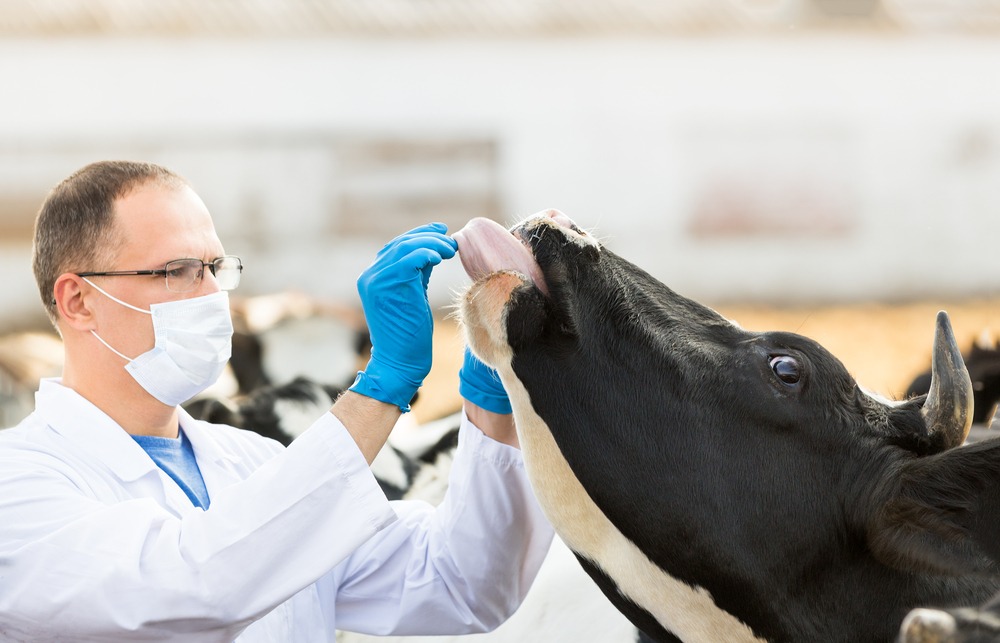Editor’s Note: Michael Helmstetter is co-founder, president, and CEO of Technology Acceleration Partners (TechAccel), the venture development organization focused on the agriculture industry. The organization focuses on accelerating tech, by bringing private capital, deal expertise and scientific expertise to the table with a network of affiliated universities and agribusinesses. Recently it partnered with Reliance Animal Health Partners to launch Covenant Animal Health Partners, which is dedicated to the development and registration of “revenue-ready” animal health products.
We asked Helmstetter to describe the partnership and rationale for its launch.
In the animal health ecosystem, the industry is made up of a handful of giants and, at the far end of the spectrum, a host of smaller emerging companies and startups. There’s not much in the middle. The giants, built by mergers and acquisitions and consolidations, in recent years have been mostly internally focused on achieving economies of scale and reducing redundancies in resources and products. The smaller players have been challenged to attract capital to achieve the growth ambitions plotted in their business plans.
This fragmentation of the ecosystem, the internal focus of the major players, and the lack of ready capital for smaller ventures exposes a bit of uncertainty in this industry. And all this at a time when biotechnology, genetics tools, and big data analytics are driving a golden age of innovation. But, as Albert Einstein famously said, “In the middle of difficulty lies opportunity.”
I have to agree. As the founder of a technology and venture development organization, I’ve seen plenty of viable innovations ripe for entering the animal health market. Sources include university research centers, startups, entrepreneurs, major animal health firms and of course, human health pharma and medical products that have – or could have – application in animal markets. That’s why my company, TechAccel, just launched a new subsidiary called Covenant Animal Health Partners.
Covenant was formed as a partnership between TechAccel and Reliance Animal Health Partners. It aims to capture the opportunity of delivering new “revenue-ready” products to the giants in animal health. These “revenue-ready” products are solutions that leapfrog the research labs of the global strategic animal health firms. TechAccel and Covenant will handle the de-risking and advancement work, all the way through registration if needed, to deliver solutions to the industry – ready for branding and marketing and distribution.
How, you ask? Our business model relies on a few key points: identifying niche products for development, rapid and efficient product development and advancement, and taking advantage of developing products for adjacent markets. It all starts with the expertise of our partnership in recognizing these “right” products alongside the ideal distribution partner.
Our team counts collective experience of more than 150 years in animal health, drawn from executive positions within the global animal health giants. It includes firsthand farm and companion animal expertise from DVMs as well as pharma registry expertise. It’s a team with the muddy boots from ground-level, real-world applications matched with deep knowledge of critical needs in the global marketplace.
This new partnership takes aim at the current state of the ecosystem, and targets a way to help the players – large and small – grow. The opportunities in the animal health market span the landscape: alternatives to antibiotics, vaccines, novel delivery methods, new therapeutics, data- and internet-driven applications, nutrient systems and more. For antibiotics and antimicrobials alone, the market shows strong growth and is estimated to reach $4.7 billion within two years.
While the giants in the industry often prioritize blockbuster products that can maximize their economics, those reaching revenues beyond $100 million or more a year, our new venture believes there’s plenty of products just below blockbuster status. And once you start examining options in adjacent markets (alternate species, alternate compositions, etc.), those just-under products begin looking quite scalable and even more attractive.
We think the time is right for trialing this model for a number of reasons, including:
· The abundance of smart scientists who are finding themselves in the job market after the downsizing exercises of the large players,
· More ideas than can be funded by the major companies,
· Plenty of R&D labs with capacity,
· The needs of the global marketplace, and
· The willingness of the largest players to incorporate an aggressive strategy for external innovation programs, including a focus on smaller market products.
No one holds a monopoly on good ideas, that’s part of the attractiveness of external innovation solutions.
The challenges of commercialization research always rest on a few key questions: Is the research close enough to ready? Will it deliver the right solution? Will it pass the requirements for safety and efficacy? And, of course, will it meet the right price point for market acceptance? The diligence in answering those questions helps mitigate risk, as does the willingness to quickly identify failures. When we combine that diligence with scientific and technical development expertise, we have a higher degree of confidence. We’re not competing with other animal health firms; we’re collaborating.
Ours is just one model for addressing the challenges of commercializing research and innovation. Plenty of other models are also experimenting in animal health – accelerators, incubators, university commercialization programs, mentoring programs. There’s room for multiple solutions, and plenty of room in the ecosystem to embrace whichever model of collaboration and partnering produces the best results for the animals in our care.





